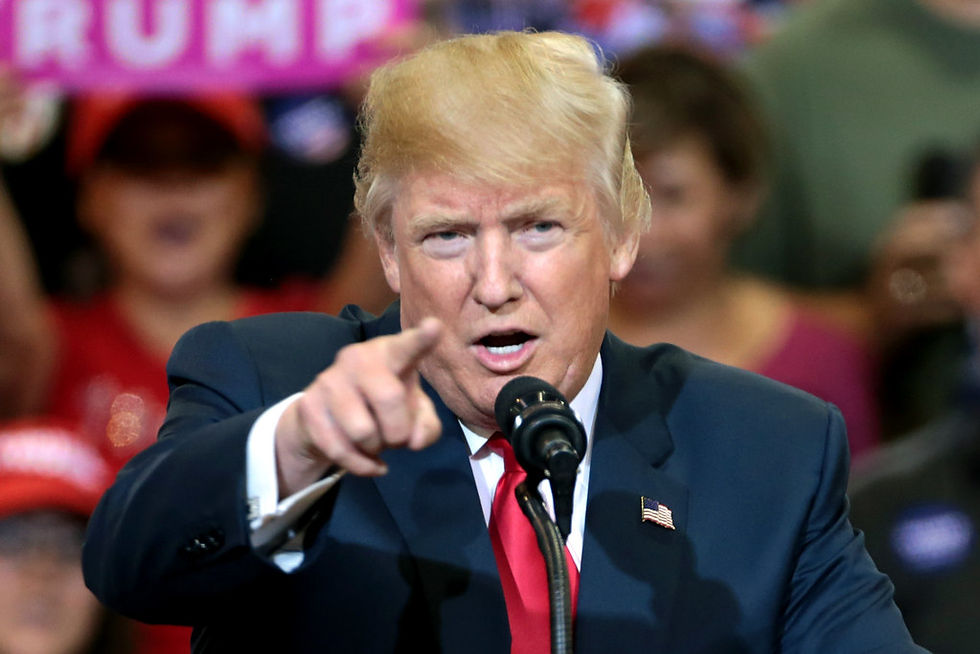The Impeachment Inquiry
- Site Admin
- Nov 10, 2019
- 3 min read
by Marla Hiller
Photo courtesy of Gage Skidmore

One of the biggest headlines circulating the news right now is the impeachment inquiry into President Donald Trump. Although it’s been a consistent piece of news in everyone’s Twitter feed, if you haven’t been following from the beginning, the updates can appear nonsensical and too intimidating to even click on. Don’t worry, it happens to the best of us. But, what do you do when the conversation comes up among your peers or at the Thanksgiving dinner table and you want to be prepared with the facts (especially to punch holes in your conservative uncle’s argument)? You read this column! I’ll break down why there is an impeachment inquiry against President Trump and what the process might look like.
So, what exactly did Trump do to warrant an impeachment inquiry? And what’s so bad about this compared to everything else he has said and done? Well, a whistleblower alleged that President Trump pressured Ukrainian President Volodymyr Zelensky to investigate former Vice President Joe Biden’s son’s business ties. This is important, as Biden is currently a leading Democratic candidate for the 2020 presidential election, a.k.a. one of Trump’s biggest re-election competitors. So, House Speaker Nancy Pelosi officially announced that the House plans to further investigate the allegation (Nancy Pelosi or Nancy Drew?). Attempting to coerce foreign powers to help you squash your competition is a big no-no, especially if you’re the President.
Okay, so that all makes sense and seems very illegal, but what does impeachment really mean and how does it work? I’m glad you asked. A common misconception is that if a president is impeached, they are removed from office. However, impeachment only refers to the vote by the House of Representatives to charge a high-ranking government officer with misconduct and then start the process of removing the government official from office. The House of Representatives needs a majority of votes for each article of impeachment to be approved. Each article is a single charge against the president. Then, each article is passed onto the Senate for trial with the chief justice of the Supreme Court—currently Justice John Roberts—presiding. To actually convict the president of any one count, two thirds of the Senate must vote to find him guilty. If 67 members of the Senate votes against the president, he would then be removed from office and the vice president would take his place.
Right now, the House is still gathering evidence to substantiate their claims. When that investigation is complete (TBA as of now) the House will vote, and if they receive a majority, it will move onto the Senate.
There are still plenty of questions circulating this impeachment inquiry, such as the impact it might have on the 2020 election and the likelihood of the impeachment actually going through. At the moment, the Senate is majority Republican, so it would take some pretty damning evidence to actually convict Trump of anything. Currently, the topic of impeachment, conspiring with foreign powers, appears to be partisan. So, for there to be any hope of removal, the evidence needs to be so clear and so credible that the case is no longer partisan. But given the insanity the Trump administration has been so far, it’s hard to believe Republican Senators would ever vote against him, even if he was caught with a smoking gun.
Additionally, if the House does end up charging the President on any article, to pass it through the majority Republican Senate the conviction must be a removal from office but not include a ban from re-election. If Trump’s conviction also necessitates barring him from running in 2020, that would be enough to push any Republican Senator on the fence to defend Trump’s innocence. Deciding if removal equates no campaign is a question America has never faced before due to the two modern cases of impeachment, Nixon and Clinton, taking place in their second term. Would removal from office be enough for Trump supporters to change their vote in 2020? Would banning Trump from running incite more far-right movements? These are questions all members of Congress must consider going into this impeachment inquiry. Moving forward with the inquiry could serve as a turning point in history, either for the worse or the better.
Comments